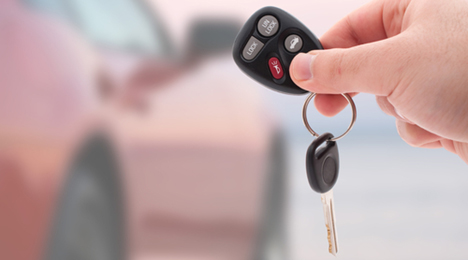Borrowers perhaps not fully prepared for financing, but diligent with payment

By subscribing, you agree to receive communications from Auto Remarketing and our partners in accordance with our Privacy Policy. We may share your information with select partners and sponsors who may contact you about their products and services. You may unsubscribe at any time.
CARY, N.C. –
Consumers are relying more on retail installment contracts and leases to acquire cars than they were eight years ago, yet many might not be as prepared as they should be going into the purchase.
However, the silver lining is that the vast majority appear to take those payments seriously once they’re in the deal.
This, according to separate studies from Instamotor and Experian Automotive.
In a presentation shared at the NADA Convention & Expo last month, Experian said 85.2 percent of new-car buyers relied on financing or leasing to fund their purchase in October and November.
Just 14.8 percent used cash.
In the fourth quarter of 2008, 77.7 percent used an installment contract/leasing to buy a new car, with 22.3 percent using cash. Those numbers have gradually shifted toward retail deals and leases over the past eight years, according to the Experian data.
Subscribe to Auto Remarketing to stay informed and stay ahead.
By subscribing, you agree to receive communications from Auto Remarketing and our partners in accordance with our Privacy Policy. We may share your information with select partners and sponsors who may contact you about their products and services. You may unsubscribe at any time.
The trend on the used-car side is similar, though leasing’s presence is considerably smaller, to say the least.
In Q4 of 2008, 56.9 percent paid cash for used cars, with 42.5 percent taking out a retail contract and 0.6 percent leasing.
In October and November of last year, 49.4 percent used cash for pre-owned vehicle purchases, with 49.8 percent using credit and 0.7 percent leasing.
Preparedness of borrowers
With so much reliance on loans and leasing, one might think that consumers would enter a car armed with things like credit-score information. But data in a study from Instamotor — titled 2017 Car Shopping Trend Report: How Prepared are Consumers? — suggests otherwise.
Instamotor, which surveyed 1,500 U.S. adults in January, found that 50.9 percent of consumers didn’t know their credit scores before buying a car.
What’s more, 71.3 percent of buyers ages 18-24 did not know their credit scores before buying a used vehicle.
In all other age brackets (25-34, 35-44, 45-54, 55-64, 65 and older), the percentage of folks who did not know their credit score ranged from 40.9 percent to 46.8 percent.
Instamotor also shared data on down payments, finding that 56.5 percent of car-buyers paid 10 percent or less of their respective incomes on the down payment of their last vehicle purchase.
Meanwhile, 27.2 percent paid 11-30 percent of their income; 11.6 percent paid 31-60 percent of their income; and 4.7 percent paid 61-99 percent of their income.
“Despite the well-known 20/4/10 rule, most Americans can only afford 10 percent or less for a down payment on a car,” Instamotor’s Julia Mak wrote in a blog post about the study.
“Previous reports state that new-car prices are unaffordable, resulting in consumers only able to afford a low down payment. So while a lower down payment may seem fiscally responsible in the short term, in the long-term car owners are at risk of paying more over time as a result of interest rate and longer-loan terms,” she said.
The Experian data sheds additional light on affordability. Average new-car payments in October/November were $504, with average monthly payment on used cars at franchised dealers coming in at $378.
In Q4 of 2008, the average payment on a new car was $465, with used franchised at $353.
Missing payments?
But here’s a good sign.
Only 12.4 percent of those surveyed by Instamotor have ever missed a car payment, with 87.6 percent saying they never have missed a payment.
Likewise, 90.8 percent of respondents have never refinanced a car loan, with just 9.2 percent saying they had.
But Mak points out in the post that “refinancing doesn’t always mean bad things ahead. If your credit score or interest rates have improved, it makes sense to refinance to reduce the duration of your loan.”
Experian does point out that the percent of contracts 60 days past due has climbed over the past few years. So, finance companies — in general — have aimed to increase the credit quality in their paper.
Terms are also becoming longer. According to Experian, 72.8 percent of new-car contracts were longer than 60 months in October/November, with 62.2 percent of used-car contracts in that ballpark.
In Q4 of 2008, those numbers were at 50.5 percent for new and 42.7 percent for used.
But credit quality is higher for longer terms. Experian said the average score on 73-84-month contract was 682 for new in October/November and 671 for used.
On the new-car side, that’s down from Q4 2008 (694) but up from 681 in Q4 2015. For used cars, that compares to 670 in Q4 2008 and 669 in Q4 2015.


